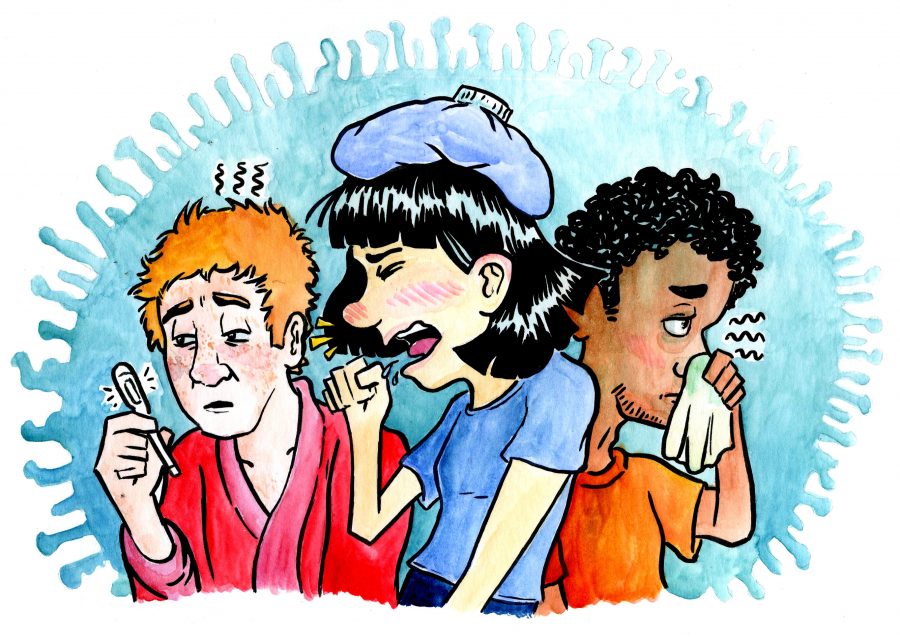When my roommate and best friend was diagnosed with cancer last October, one of the first things I did was get a flu shot.
In the past, I’ve procrastinated getting my flu vaccine. Needles are uncomfortable, waiting in line for a shot is tedious and the aches that follow never fail to put me in a bad mood.
Although I didn’t realize it at the time, I also thought people my age were invincible.
When someone you care about is sick, it’s hard to know what to do in the days, weeks or months following the initial diagnosis. I found myself buying my roommate the strangest things after she told us the news — chocolate, books and even a spaghetti spoon, because she had mentioned once that we needed one. I’ve never felt so helpless, useless and without control.
While I’m not sure buying a spaghetti spoon helped anyone, I do know getting a flu shot did. According to the CDC, cancer patients have a high risk of developing serious flu complications. Because of this, they recommend cancer patients, and those who are close to them, get vaccinated each year.
On a crowded campus such as UT, students who are immunocompromised like my roommate must rely on herd immunity to avoid getting the flu. “If you think of our campus as a herd, the whole idea is that the more people that have the flu shot, the greater our herd immunity is,” said Kathy Mosteller, associate director for nursing and clinical operations at University Health Services.
In spite of several outreach clinics hosted around campus during the fall semester, many students still haven’t gotten their flu shot. “We gave 15,000 flu shots in the fall semester, approximately, and we’ll only give several thousand if we’re lucky in the spring semester,” said Mosteller. While many students line up for clinics at the SAC and Gregory Gym at the beginning of flu season, far fewer students visit UHS for their shot in the spring. With less clinics and a decreased sense of urgency, some students decide it’s too late to get vaccinated.
Even though it’s already February, it’s not too late to get a flu shot. According to the CDC, February is typically the peak month for flu activity in the United States.
No one wants to catch the flu, but for some of us, the stakes are much higher. “It’s really easy to procrastinate or just not think it pertains to somebody,” said Mosteller. For vulnerable populations, catching the flu can lead to hospitalization and, in some cases, death.
When I stood in line for my flu shot this season, I had a renewed sense of purpose. I hope you will too.
If you haven’t received your vaccine, you can visit the UHS Allergy, Immunization, and Travel Clinic to schedule an appointment.
López is a rhetoric and writing junior from McAllen.


















